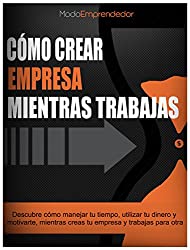
Over the years, Google has embarked on countless searches, collected loads of data, and spent millions trying to better understand its work teams.
One of the company’s most exciting initiatives, Project Aristotle, brought together some of Google’s best and brightest to help the organization codify the secrets to effective teamwork.
Specifically, Google wanted to know why some teams stood out while others fell behind.
Prior to this study, like many other organizations, Google executives believed that building the best teams meant collecting the best people; which makes sense. The best engineer, an MBA, plus a PhD and there you have it. The perfect team, right?
In the words of Julia Rozovsky, analytics manager at Google; “We were absolutely wrong.”
The Aristotle Project.
Selected to lead the efforts was Abeer Dubey, Google’s director of people analytics (Human Resources). Eager to find the perfect mix of skills, backgrounds, and traits to craft super teams; Dubey recruited statisticians, organizational psychologists, sociologists, engineers, and researchers; to help solve the puzzle. Included in this lineup of specialists was Rozovsky.
Two years later, the Aristotle Project had managed to study 180 Google teams; conduct over 200 interviews and analyze over 250 different team attributes. Unfortunately, they did not find a clear pattern of features that could be plugged into an algorithm for generating “awesome” work teams.
As The New York Times described it, “it wasn’t until Google started considering some intangibles that things started to click.”
“While struggling to discover what makes a team successful, Rozovsky and his colleagues followed research by psychologists and sociologists that focused on what are known as “group norms”: traditions, standards of behavior, and unwritten rules. that regulate how work teams work when they meet…The rules are not said or openly recognized; but its influence is undeniable”.
With additional direction, and thanks to a research study on collective intelligence (abilities that arise from collaboration) by a group of psychologists from Carnegie Mellon, MIT, and Union College, Project Aristotle researchers turned their gaze to unspoken mores. Specifically, to any behavior by team members that magnified their collective intelligence.
Through Google’s “Re:Work” site, a website where they share the results of Google’s ideas and practices on people studies. Rozovsky outlined the five key characteristics shared by the best work teams.
Five key characteristics shared by the best work teams
1. Reliability.
Team members get things done on time and meet expectations.
2. Structure and clarity.
High performance teams have clear objectives and have well-defined roles within the group.
3. Meaning.
Work has personal meaning for each member.
4. Impact.
The group believes that their work is purposeful and has a positive impact on the common good.
5. Psychological safety.
We’ve all been in meetings and, out of fear of appearing incompetent, have withheld questions or ideas. Which is understandable. It’s unsettling to feel like you’re in an environment where everything you do or say is under scrutiny.
But imagine a different setup. A situation where everyone feels safe to take risks, express their opinions and ask questions without judgment. A culture where managers create safe zones so employees can let their guard down. That’s it psychological safety.
It’s probably not the quantitative data you expected. However, Google found that work teams with psychologically safe environments had employees who were less likely to leave, more likely to harness the power of diversity, and ultimately be more successful.
Building the perfect team is more subjective than we’d like, but focusing on these five components increases the likelihood that you’ll build the ideal team. Through its research, Google did the ancient Greek philosopher Aristotle proud by proving that “the whole can be greater than the sum of its parts.”
And remember, if you are really interested in creating your own business, you can purchase our book “How to create a company while working: Discover how to manage your time, manage your money and motivate yourself while creating a company and working for another” , where you will find all the information you need to found your own company, without having to leave your job.

Font

